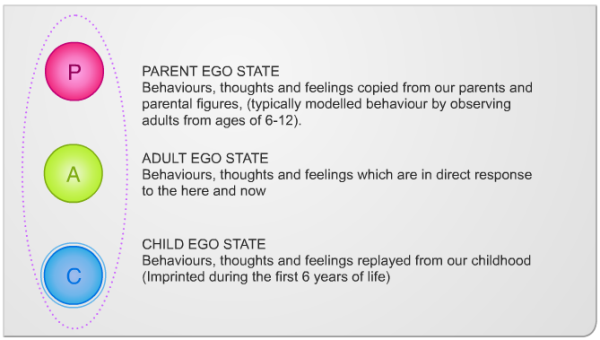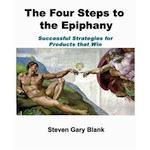Selling Psychology: Why it pays to know Transactional Analysis in Sales
I read David Sandler’s book “You Can't Teach a Kid to ride a Bike at a Seminar” in 2002 and was intrigued with some of his ideas. David Sandler, to my knowledge was the first sales trainer to recognize the value and popularize the use of Transactional Analysis techniques (TA) in sales.Transactional Analysis is a branch of psychology and psychotherapy technique founded by Eric Berne in the 1950's, and made popular in the book Games People Play. Click here for an introduction to TA
Sandler started out selling sales training programs on 78 records. He made thousands of calls and observed that it had become an accepted belief in Western culture, that sales-people are fair-game.
Sandler started out selling sales training programs on 78 records. He made thousands of calls and observed that it had become an accepted belief in Western culture, that sales-people are fair-game.
Furthermore, he observed that many buyers believe that it’s OK to waste a salesperson's time and resources, deliberately mislead them and even lie or with-hold the truth from them.
Sandler believed the use of TA and other manipulative techniques were the only way salespeople could level the playing-field in a relationship that was heavily tilted in favor of the buyer.
Sandler died in 1995, but his "negative reverse selling", and "struggling child" are pure Transactional Analysis techniques applied to selling situations and live on through generations of Sandler training professionals.
The following is a brief introduction of the ego-state model and a Flash video of a scenario for using a complementary transaction.The Ego-State Model
At any given time, a person experiences and manifests their personality through a mixture of behaviors, thoughts and feelings. Typically, according to Transactional Analysis, there are three ego-states that people consistently use:
Adult: a state in which people behave, feel, and think in response to what is going on in the "here-and-now," using all of their resources as an adult human being with many years of life experience to guide them.
Parent: a state in which people behave, feel, and think in response to an unconscious mimicking of how their parents (or other parental figures) acted, or how they interpreted their parent's actions.
Child: a state in which people revert to behaving, feeling and thinking similarly to how they did in childhood.
We experience constant movement between all the ego states in response to thoughts, events, people, and memories.

Sandler believed the use of TA and other manipulative techniques were the only way salespeople could level the playing-field in a relationship that was heavily tilted in favor of the buyer.
Sandler died in 1995, but his "negative reverse selling", and "struggling child" are pure Transactional Analysis techniques applied to selling situations and live on through generations of Sandler training professionals.
The following is a brief introduction of the ego-state model and a Flash video of a scenario for using a complementary transaction.
The Ego-State Model
At any given time, a person experiences and manifests their personality through a mixture of behaviors, thoughts and feelings. Typically, according to Transactional Analysis, there are three ego-states that people consistently use:Adult: a state in which people behave, feel, and think in response to what is going on in the "here-and-now," using all of their resources as an adult human being with many years of life experience to guide them.
Parent: a state in which people behave, feel, and think in response to an unconscious mimicking of how their parents (or other parental figures) acted, or how they interpreted their parent's actions.
Child: a state in which people revert to behaving, feeling and thinking similarly to how they did in childhood.
We experience constant movement between all the ego states in response to thoughts, events, people, and memories.

Transactional Analysis - Complementary Child-Parent Transaction "The Struggling Child"
The following technique is useful in gaining access to executives and gathering information.
The “struggling child” has long been used in sales to produce a desirable complementary response when cold-calling – you may have even used it yourself when you have forgotten to do something or made a mistake and you need a person in authority to grant you a concession.In sales, and especially especially telesales, negotiating the corporation and finding the right person is half the battle.
In the "struggling child - parent" transaction, the seller will mimic the physiology and tonality to produce the ego-state which invites the Gatekeeper in this case, to respond as a nurturing parent.
Seller: (Struggling-child) is John even the right person for Web performance?
Gatekeeper: (Nurturing parent) John does handle Internet operations
In this familiar information gathering transaction, the gatekeeper unconsciously accepts the invitation from the struggling child and responds to the salesperson in the role of nurturing parent and the transaction is complementary.
What other possible outcomes are there for this…..let’s examine a couple of them.
The gatekeeper recognizes the attempt at manipulation, crosses with an adult- adult transaction and challenges the seller with any number of the following: what company are you with?, who are you?, or this gem, I’m not allowed to give out that information.
Another scenario could occur where instead of hooking the nurturing parent, we get the critical parent…..”I’m sorry, John doesn’t take cold-calls” and the gatekeeper hangs-up on you.
It’s worth mentioning that you cannot make someone respond to you in a certain way…..you can only invite them to respond…and for this reason some of these transactions will fail some of the time.
In the "struggling child - parent" transaction, the seller will mimic the physiology and tonality to produce the ego-state which invites the Gatekeeper in this case, to respond as a nurturing parent.
Seller: (Struggling-child) is John even the right person for Web performance?
Gatekeeper: (Nurturing parent) John does handle Internet operations
In this familiar information gathering transaction, the gatekeeper unconsciously accepts the invitation from the struggling child and responds to the salesperson in the role of nurturing parent and the transaction is complementary.
What other possible outcomes are there for this…..let’s examine a couple of them.
The gatekeeper recognizes the attempt at manipulation, crosses with an adult- adult transaction and challenges the seller with any number of the following: what company are you with?, who are you?, or this gem, I’m not allowed to give out that information.
Another scenario could occur where instead of hooking the nurturing parent, we get the critical parent…..”I’m sorry, John doesn’t take cold-calls” and the gatekeeper hangs-up on you.
It’s worth mentioning that you cannot make someone respond to you in a certain way…..you can only invite them to respond…and for this reason some of these transactions will fail some of the time.
Guidelines:
- The Struggling Child is a manipulative technique and therefore should not be used, except where it is clear that the buyer is being disengenuous.
- It only works some of the time
- Using it effectively requires practice, subtlety and natural delivery.
The Ulterior Transaction: Sandler's Famous Negative Reverse Sell
The negative reverse is one of Sandler's signature moves. It is manipulative and requires a lot of practice to get right. I no longer use it except in certain circumstances when I get dismissed without a fair hearing... or when the buyer crosses one of my adul-adult transactions.
Early in mastering this technique, salespeople should be prepared for some "blood on the ceiling" as they really piss-buyers-off by using the wrong intonation... which comes across as condescending.
My video example is a bit weak and technically naive, but hopefully you get the point. I sell sales training and a reverse transaction that I use after the buyer dismisses my initial approach is, "so there's probably nothing you could do to improve sales performance then". Tone and intonation are really important as you are trying to hook the buyers child.
These techniques only work half of the time and you need to think carefully about using them. Do you like being manipulated by salespeople?
These concept is an excerpt for Advanced Marketing Concepts (Admarco) "Selling in the Internet Age" Selling Psychology E-Learning program running on the Cogbooks adaptive E-learning platform.




